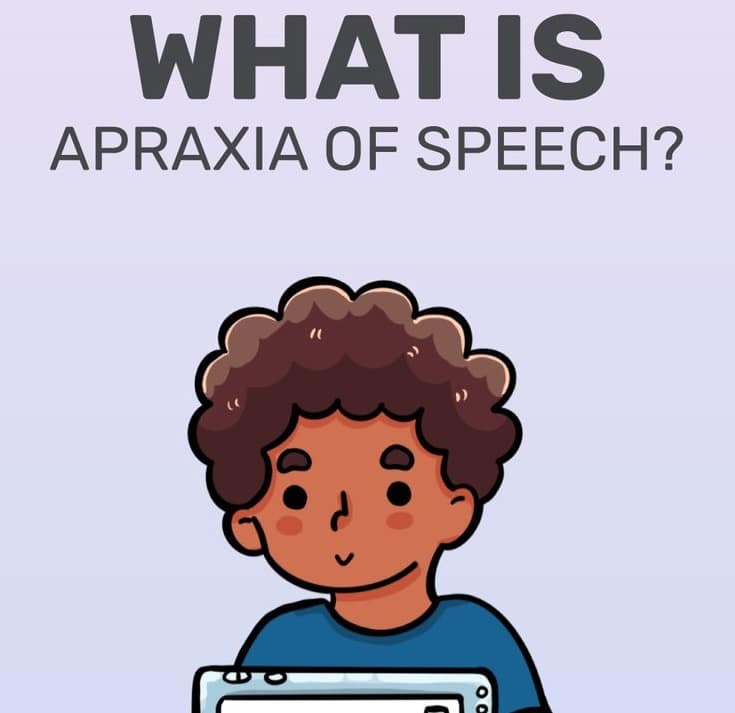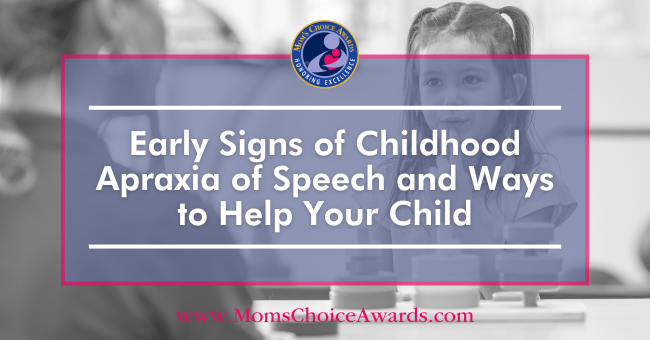
Emily Parker
Blog writer for Goally
Facebook | Instagram
 Noticing that your child’s speech isn’t as clear as expected? It could be a sign of childhood apraxia of speech (CAS). Understanding the early signs can help you support their communication development and get the right interventions early.
Noticing that your child’s speech isn’t as clear as expected? It could be a sign of childhood apraxia of speech (CAS). Understanding the early signs can help you support their communication development and get the right interventions early.
Key Takeaways:
- A speech-language pathologist (SLP) can provide a proper diagnosis and tailored therapy plan.
- Childhood apraxia of speech (CAS) affects a child’s ability to plan and coordinate speech movements.
- Signs include inconsistent speech errors, difficulty pronouncing longer words, and trouble imitating speech.
- Early intervention, including speech therapy, can improve communication skills.
- Children with CAS may benefit from visual cues, repetition, and motor-based speech therapy techniques.
What is Childhood Apraxia of Speech? Henry’s Experience with Apraxia
Understanding Childhood Apraxia of Speech
Childhood apraxia of speech (CAS) is a disorder that makes it difficult for a child to coordinate movements for clear speech. Kids with CAS struggle to plan and execute these movements, leading to challenges in pronouncing words correctly. CAS arises from the brain’s difficulty sending the right signals to speech muscles, not from muscle weakness or damage; however, early signs of CAS can be observed.
Read more: How to Help a Child With Speech Apraxia
Early Signs of Childhood Apraxia of Speech: Finding the Clues
To help you spot the early signs of childhood apraxia of speech, we’ve created a list of common signs that your child might be facing CAS. Remember that every child is unique, and having one or more of these signs doesn’t always mean your child has CAS. However, if you see these patterns, it’s a good idea to talk to a speech-language pathologist (SLP) or another expert.
- Late speech development: Children with CAS often reach speech and language milestones later than their friends.
- Fewer words: Kids with CAS may know fewer words because it’s hard for them to form words.
- Inconsistent speech mistakes: They might make different mistakes when saying the same word.
- Trouble with long words and sounds: Children with CAS often find it hard to say multi-syllable words and complex speech sounds.
- Searching for sounds: You might see your child trying several times to say a word, as if they’re looking for the right sound.
- Uneven speech: Kids with CAS often have speech that sounds choppy, with odd pauses between syllables and words.
- Difficulty copying speech: Children with CAS may struggle to repeat words and phrases when asked, even if they know what they mean.
- Flat speech melody: Their speech might sound flat, without the usual rhythm and tone of regular talking.
- Problems with non-speech mouth movements: Kids with CAS may have trouble doing non-speech tasks that need careful mouth control.
Evaluation and Diagnosis of Childhood Apraxia of Speech
If you think your child might be showing early signs of childhood apraxia of speech, it’s important to talk to a speech-language pathologist (SLP). An SLP will do a complete assessment to find out if your child has CAS or another speech problem. Keep in mind that starting help early is crucial for your child’s speech development.
Tips and Support
Helping a child with Childhood Apraxia of Speech can feel tough, but don’t worry—we’re here for you! Here are some tips to support your child and help them grow their speech skills:
- Regular therapy: Consistent visits with a skilled SLP are important for kids with CAS. They’ll make a therapy plan based on your child’s needs and goals.
- Encourage practice: Practice is key! Help your child practice their speech exercises often, both during therapy and at home.
- Use pictures or gestures: Visual cues, like pictures or hand movements, can help kids with CAS understand and say words. Use these cues to help their communication.
- Break words into parts: Make long words easier for your child by breaking them into smaller pieces.
- Be patient and encouraging: Patience is important when helping a child with CAS. Give praise and encouragement for their hard work, and remind them that progress might be slow, but it will happen.
- Create a comfortable space: Make a relaxed and stress-free home where your child feels safe practicing their speech without judgment.
- Try other communication methods: For some kids with CAS, other ways of communicating, like sign language or communication devices, can help them express themselves.
Building a Childhood Apraxia of Speech Support Network
You don’t have to face the world of childhood apraxia of speech alone after identifying the early signs. Meeting other parents and caregivers of neurodivergent kids and kids with thinking and learning differences can offer helpful advice, resources, and emotional support. Here are some ways to make connections:
Many online groups have formed for parents and caregivers of children with CAS or other speech problems. Share your stories, ask your questions, and learn from others who know what you’re going through.
- Go to local support groups: Look for support groups or parent get-togethers in your area, where you can meet others who understand your challenges and successes.
- Stay in touch with experts: Keep in contact with your child’s SLP, teachers, and other professionals who work with your child. They can offer valuable guidance and support throughout your child’s journey.
- Teach your child’s friends: Talk to your child’s friends, classmates, and their parents about CAS, so they know how to support your child when playing and hanging out.
Recognizing early signs of childhood apraxia of speech (CAS) is crucial for your child’s success. Seeking professional help and effective strategies can empower them to overcome CAS challenges. Although progress may be gradual, significant improvements in speech and language abilities are possible with determination and support. Being attentive to your child’s speech development enhances communication and boosts confidence. Parents and caregivers, by embracing this journey with love and dedication, can positively impact their child’s life.
 About Emily Parker
About Emily Parker
Emily is a seasoned blog writer for Goally, leveraging her extensive background in child psychology and special education to provide valuable insights and resources for parents. Her commitment to understanding and addressing the unique needs of these children, combined with her expertise in educational strategies, makes her a credible and empathetic voice for families.
View all posts by Emily Parker here.





